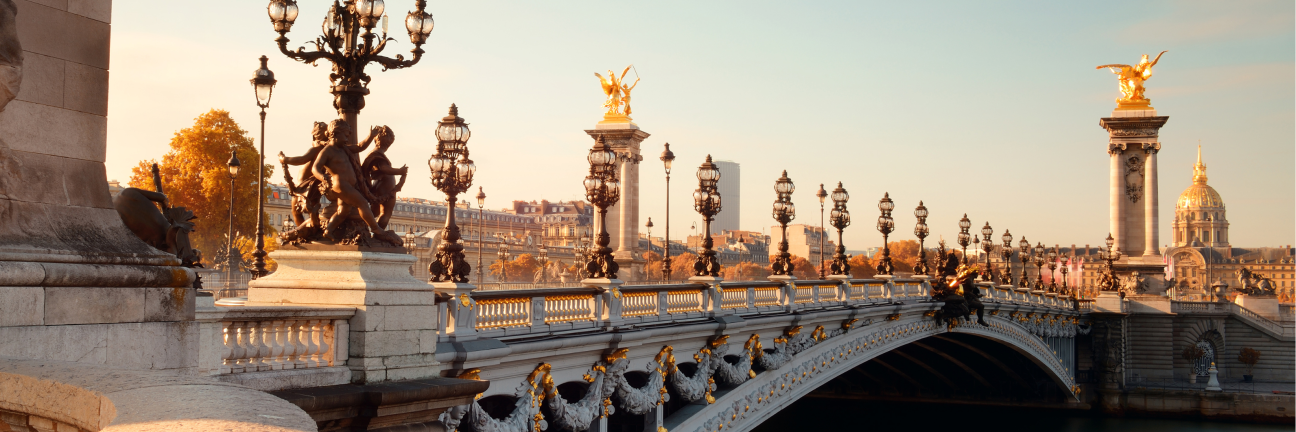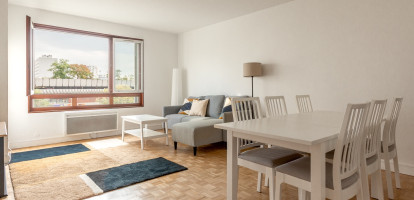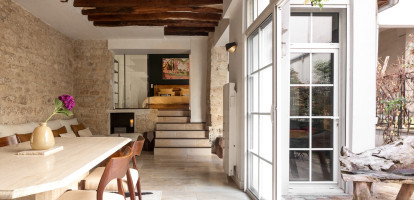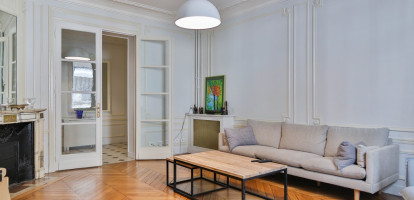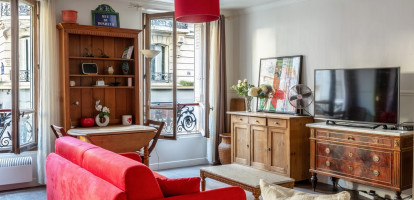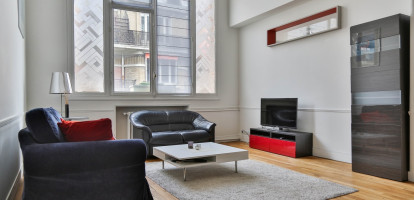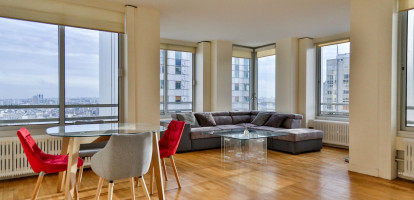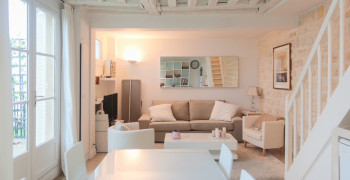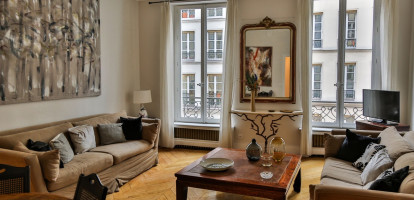The Paris Real Estate market remains a hotspot for local investors and international buyers. According to Notaires du Grand Paris, in 2023, out of the 109,100 property sales recorded in the Paris region, 1.1% were made by non-resident foreigners, while 10% were made by resident foreigners, showing a consistent international interest in real estate investment in Paris. However, most transactions are still driven by those living in France.
Investing in property in Paris is more than just acquiring a home—it’s a long-term investment in a stable and highly desirable market. As an expat, owning a piece of Paris provides financial security and a connection to one of the world’s most iconic cities. However, buying real estate in Paris as an expat comes with its own set of challenges. This guide will walk you through the essential steps, challenges, and resources to help you navigate the investment process and turn your dream of owning a home in Paris into a reality.
Can you buy property in France as an expatriate?
Yes, as an expat, you can legally purchase property in France. There are no restrictions preventing foreigners from buying real estate. However, suppose you can only pay some at a time in cash and need to secure a loan. In that case, it can be a much more complex process, influenced by factors like your country of origin, income level, marital and residency status, and other personal circumstances.
Buying Property For EU and EFTA Citizens
If you’re an EU or EFTA citizen, generally, there are no additional barriers to purchasing property in France. The process is relatively straightforward, especially if you already live in France, and is almost identical to what French citizens experience. The only potential hiccup might be translating certain official documents if they are not in French. If you don’t reside in France, banks tend to be more cautious, and obtaining a loan may require more proof of financial stability.
Buying Property For Non-EU Citizens
Buying property is still possible for expats outside the EU, but obtaining a mortgage will require demonstrating a clear intent to stay in France. Banks are generally more willing to give loans if you can prove long-term ties to the country. Proving your intention could include:
- Holding a passport talent or a long-term residence permit (titre de séjour).
- Being married to a French citizen.
- Showing evidence of a residence permit valid for at least four years.
With these documents, French banks are more likely to consider financing your purchase, as they see it as a sign of stability and commitment to remaining in France.
The Administrative Steps to Buy Property as an Expat
Purchasing a property in Paris involves several critical stages, each with specific requirements for non-residents. Here's what you need to know:
1. Understand Your Financial Capacity
Budgeting for Your Property Purchase
When planning your property purchase in France, it's essential to consider additional costs beyond the property price. These include notary fees and taxes, typically 7–8% of the purchase price for an older property and 2–3% for a new one. Properly factoring in these costs will give you a realistic sense of your overall budget.
Beware: The 2025 Financial Law discusses raising the tax included in the notary fee.
Financing Your Purchase
French banks will require documents like proof of income, your work contract, tax returns, and bank statements if you need a mortgage. Most banks allow you to borrow up to 70–80% of the property's price (excluding purchase costs), but the process is income-based rather than asset-based. French lenders follow strict affordability rules, ensuring your monthly credit commitments—including the new mortgage—don't exceed one-third of your gross monthly income. This calculation includes car loans, other mortgages, and rent payments but excludes taxes, consumer credit, and insurance premiums.
- Loan Term: Mortgages in France cannot exceed 25 years.
- Additional Requirements: You'll need a life insurance policy tied to the loan, a downpayment of at least 10%, and a stable income history with no overdrafts or missed payments.
- For Non-Residents: If you're not living in France full-time, you must prove your intent to stay in the country throughout the loan term.
To estimate your monthly repayments, borrowing capacity, or loan rates, use the French government's online mortgage calculator to help you plan more effectively before applying for financing.
Cash Transactions
If you buy the property outright with cash, you must arrange an international transfer to the notary's account. Using a specialized currency exchange service is a wise choice. These companies are faster and often cheaper than traditional banks, with no commissions or receiving bank fees for regular or one-off payments. Additionally, they offer free insights into currency markets, helping you exchange money at the most favorable rate, which can save you significant amounts.
2. Finding the Right Property
To find the right property for you, consider collaborating with an agency catering to expats.
For example, an agency like Paris Rental, created in 1987, exclusively turned to expats’ needs, offering a multilingual team that can understand their unique needs and situations.
With Paris Rental's help, you will benefit from extensive research of neighborhoods to find a location that suits your lifestyle and budget.

3. Additional points to consider
When buying property in France, there are several important factors to consider to avoid surprises, such as:
Local Taxes
As a homeowner in France, you must pay the "taxe foncière" (property tax). Additionally, suppose the property is your secondary residence; then you must pay the taxe d'habitation sur les "résidences secondaires" (residence tax for second home).
Last, if you occupy this secondary residence for less than three months a year, you may be subject to a vacant home tax.
These taxes can vary significantly, even within different parts of the same city, so it's essential to research the specific rates for your chosen location before finalizing your purchase.
Co-ownership and Planned Work
If you're purchasing an apartment in France, you'll become part of the building's co-ownership association (Syndicat de copropriétaires). Before committing to buying an apartment in a "copropriété," take the time to review the annual building fees, the co-ownership contract (règlement de copropriété), and the minutes from recent meetings (procès-verbal des dernières assemblées générales).
These documents provide critical insights into any planned maintenance work, ongoing issues or disputes among residents, and the rules governing what renovations or modifications you can undertake without needing approval from other co-owners. Doing this due diligence will help you avoid surprises and ensure you're comfortable with co-ownership terms.
Property Condition
Ask the realtor for an estimate of any potential renovation costs, but keep in mind their estimates may be on the low side. The seller must also provide an official diagnostic report (diagnostic immobilier) that includes energy performance, interior electricity and gas installation state, and risks such as pollution or flooding. This exhaustive information can help you estimate future energy bills and understand the property's condition.
4. Making an Offer on a Property in France
Property prices in France are negotiated downward, not upward. In France, making an offer depends mainly on the property's market conditions. If you're buying in a seller's market, don't expect owners to entertain offers below their asking price. However, if the property has been on the market for a long time, needs significant renovation, or has other drawbacks, you may have room to negotiate—typically a few percentage points below the asking price.
When making an offer on a property in France, it's essential to be precise and formal. Your offer should include key details such as the property description, date of the offer, proposed price, and the offer's validity period (typically 1–2 weeks). To strengthen your case, add your financing plan (e.g., personal contributions or loans), the deposit amount you intend to pay when signing the sales agreement, your preferred move-in date, etc.
Submit your offer directly to the seller or their real estate agent via registered mail with acknowledgment of receipt (courrier recommandé avec avis de réception) or email if accepted. The offer expires once the validity period ends, and the seller can no longer take it.
Once the seller accepts your offer and signs the initial sales agreement (compromis de vente), they are legally bound to sell at that agreed price. Yet, the law allows the property purchaser to withdraw for 10 days without justification or compensating the vendor.
5. Hiring a Notary in France
While the seller’s notary who can represent both parties, hiring your notary when buying property in France is recommended. Your notary will independently review the paperwork, conduct thorough research, and flag any issues or discrepancies that could impact your purchase.
6. Signing the Preliminary Contract (Compromis de Vente)
This initial pre-sale agreement is legally binding for both the buyer and the seller, outlining the terms of the sale and providing a 10-day cooling-off period for the buyer to withdraw if necessary. A realtor or notary can draft this document. Working with a translator or legal advisor is advisable to fully understand all clauses.
7. Paying the Deposit
After signing the sales agreement (compromis de vente), you'll need to pay a deposit of 5–10% of the property price to the notary. This amount will count toward the final purchase price if the transaction proceeds.
If you decide to withdraw your offer within the 10-day cooling-off period or fail to secure a loan from the bank, the deposit will be refunded to your account within 21 days.
However, if you retract your offer without valid justification after the 10-day cooling-off period, the injured party receives compensation, which is freely fixed at between 5% and 10% of the property's price.
8. Finalizing the Sale - Signing the Final Deed of Sale
The final deed of sale, known as the Acte de Vente, is signed in the presence of a notary, marking the official transfer of ownership to you. At this stage, it's crucial to ensure that the funds are transferred from your bank to the notary on or before the signature date of the final sales agreement. This step confirms your commitment and readiness to proceed with the purchase, keeping the transaction on track.
9. Ownership Transfer
Once the transaction is complete, you'll receive the keys and official documents proving your ownership.
The final sales agreement is typically signed electronically. After signing, the notary submits the document to the Service de la Publicité Foncière for validation and stamping. Once this administration approves, the notary will send you the finalized version. This process can take several months, so patience is vital.
Don't worry about losing the document—the notary's office keeps an official copy on file for 100 years, ensuring you always have access if needed.
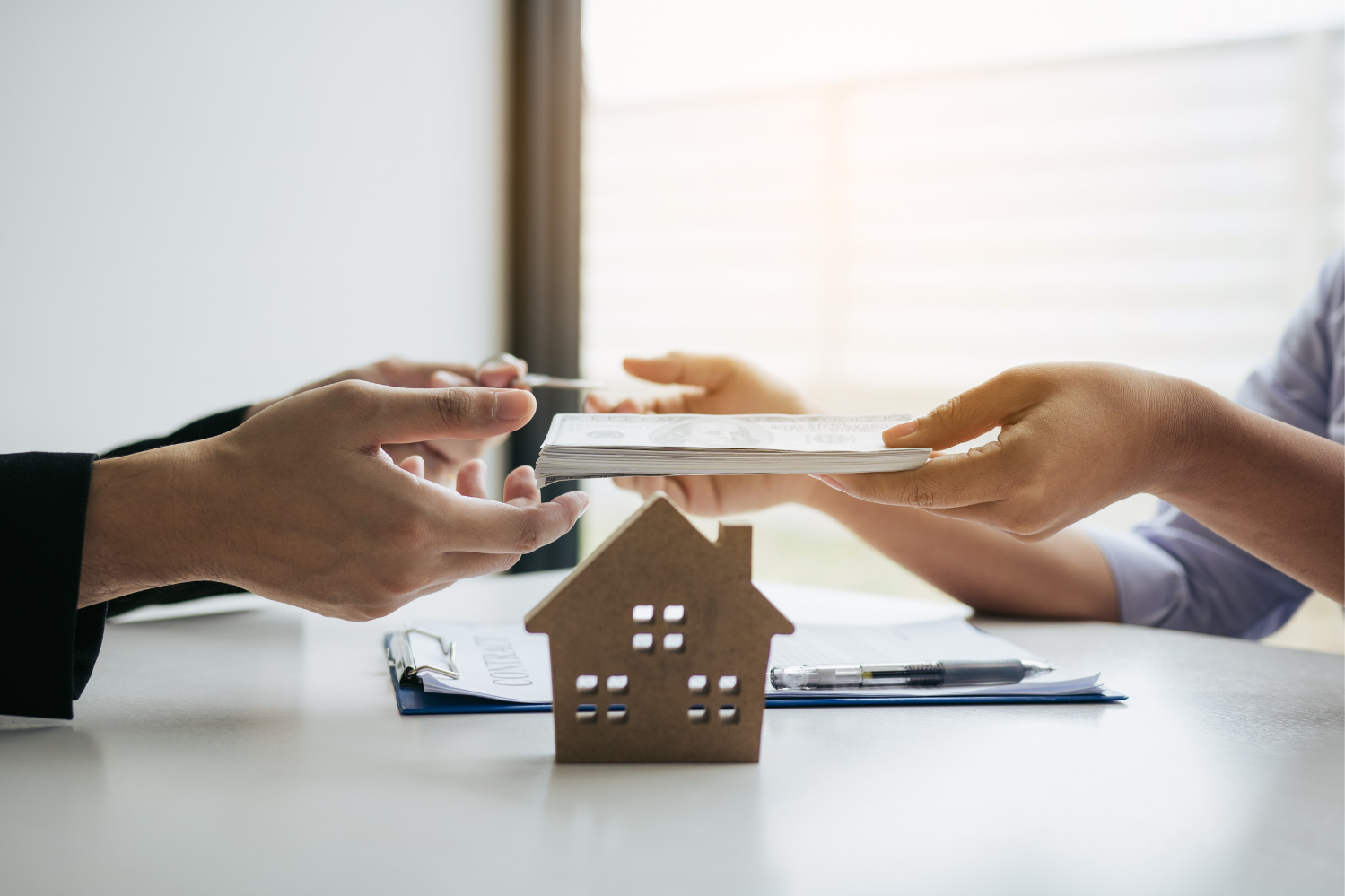
Common Challenges Expats Face—and How to Overcome Them
Buying property in a foreign country can be complicated. Here are the most common hurdles ex-pats face and practical solutions to navigate them:
1. Language Barrier
- Challenge: Legal documents and negotiations are in French.
- Solution: Work with bilingual real estate agents who can give you a translation or hire a legal advisor to avoid misunderstandings.
2. Legal and Cultural Differences
- Challenge: France's property laws and procedures differ from other countries.
- Solution: Engage a notary and, if possible, an attorney specializing in international real estate.
3. Financing Difficulties
- Challenge: Approaching a French bank as a non-resident to ask for a mortgage can be challenging and, in some cases, nearly impossible. Most French banks prefer clients with a regular income deposited into a French bank account. When this is the case, banks can engage with foreign clients, especially those who have established ties to France. The process can be even trickier for American borrowers due to FATCA (Foreign Account Tax Compliance Act) regulations, which impose additional reporting and compliance requirements on foreign financial institutions.
- Solution: In France, lending institutions cater to non-residents by offering specialized mortgage products. Partner with a mortgage broker experienced in working with expats to present a solid application for French banks.
The Best Neighborhoods for Expats to Buy Property in Paris
Each neighborhood or arrondissement in Paris has unique charm and appeal. Here are the most popular areas among expats in 2024 to invest:
- 6th Arrondissement (Saint-Germain-des-Prés) is known for its charming streets, upscale boutiques, iconic literary cafés, and artistic vibe.
- 7th Arrondissement (Eiffel Tower, Invalides) offers prestige, beautiful Haussmann architecture, and proximity to major landmarks, including the Eiffel Tower, Champ de Mars, Hôtel des Invalides, Ecole Militaire, Musée d'Orsay.
- 16th Arrondissement is a favorite neighborhood for families and diplomats due to its green spaces, schools, international institutions, and upscale residential atmosphere.
- 10th and 11th Arrondissements are vibrant, trendy, and popular with young professionals and creatives.
- Le Marais (3rd and 4th Arrondissements) are a mix of historic charm and modern flair, ideal for those seeking a lively neighborhood who love fashion and art.
Choosing the right neighborhood is crucial, so take the time to explore and find a location that aligns with your lifestyle.

Buying property in Paris as an expat can feel overwhelming, but it's an achievable goal with the proper preparation and support. From understanding the administrative steps to overcoming cultural and legal hurdles, this guide provides the foundation you need to get started.
Agencies like Paris Rental simplify the process, ensuring that every step, from finding the perfect home to signing the final papers, is handled professionally and carefully.
So, are you ready to make your Parisian property dream a reality? The charm of Paris awaits you!
Editor: Siyi CHEN
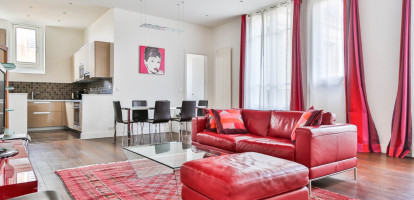


 Français
Français
